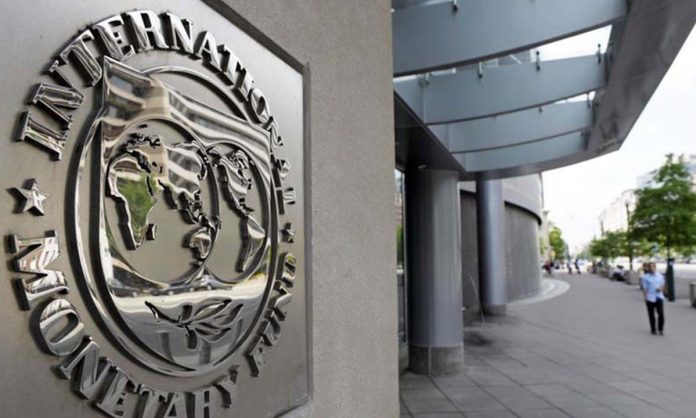ISLAMABAD: The 7th National Finance Commission (NFC) Award has become redundant as it has failed to give any policy in terms of devolution of fiscal resources and to counter the unexpected fiscal shocks.
The International Monetary Fund (IMF) stated this in its Post Monitoring Review Report which is available with Pakistan Today.
The international lending institution has completed two PMRs of Pakistan’s economy after ending the three years $6.4 billion Extended Fund Facility (EFF)-supported program.
The 7th NFC Award is an unbalanced and less flexible intergovernmental fiscal framework as devolution of fiscal resources was not tied to the devolution of expenditure responsibilities.
Pakistan will have to take effective measure to strengthen the 7th National Finance Commission (NFC) Award by increasing the efficiency, flexibility, and responsiveness of the fiscal framework. The 7th NFC Award has posed serious challenges related to the revenue-sharing arrangement for fiscal policy-making and may have changed incentives at both federal and provincial levels.
The report stated that the devolution of fiscal resources in 7th NFC award was not synchronised with strengthening Public Financial Management (PFM) frameworks at the provincial level thus there is scope to improve the transparency and budgeting practices of quasi-fiscal operations and the operations of provincial public enterprises.
The report further stated that the NFC Award does not include a strategy to counter unexpected fiscal shocks. The NFC report recommendations include a possibility of federal assistance to provinces in times of unforeseen calamities, but no such provision was made in case of a need for reverse assistance in times of national emergencies. This leaves the federal government more vulnerable to fiscal shocks, especially if affordable borrowing options are limited.
In addition to this, The NFC did not consider critical functions (such as public debt and the electricity sector) of national importance which fall under the jurisdiction of the Council of Common Interests (CCI)-and hence are a joint responsibility of the federal and provincial governments after the 18th Amendment.
The report stated that fiscal decentralisation still did not trickle down to local governments. The implementation of the Article 140A of the Constitution, prescribing the provincial governments to devolve political, administrative, and financial responsibility and authority to the local governments remains largely incomplete, notwithstanding some progress with provincial finance awards and local government finance legislation adopted in some provinces.
The report revealed that the federal government was expected to bring down its fiscal deficit from 5.5 per cent of GDP to 4.1 per cent of GDP, on the back of gradual but continuous rationalisation of current expenditure and strong revenue growth. Federal development expenditure was expected to increase by 0.6 per cent of GDP per year over the next five years.
Moreover, the provincial revenue, from both own and federal sources, was expected to increase by 4 per cent of GDP. The bulk of this increase (3 per cent of GDP) was to be used for development expenditure with only a modest increase in current spending (by 0.5 per cent of GDP) and balanced budgets.
In addition to this, the international lending institution has given the proposals for next NFC award that there is a scope for improving the coordination mechanisms between the federal and provincial governments as economic management in addressing macroeconomic imbalances and vulnerabilities has become more constrained.
Important revenue sources have been underexploited and the overall efficiency of public expenditure and social outcomes were mixed due to a generally lower and uneven quality of PFM frameworks at the provincial level. In more turbulent times, these vulnerabilities could undermine macroeconomic stability.
Moreover, the constitutional nature of some parameters of Pakistan’s fiscal decentralization framework constrains near-term options however improvements can be considered within the current legal framework.
In this context, the NFC may better account for the anticipated consequences of the next award on public debt, the effectiveness of fiscal policy, nation-wide efficiency of public expenditure across all levels of government in light of the uneven quality of PFM frameworks, as well as strategies to cope with unanticipated shocks.
In addition, emphasis could be placed on better incentives and coordination in the area of tax revenue mobilisation and overall fiscal stance across all layers of government. To this end, a number of options could be considered, either in the context of the NFC Award or as a subject matter for the CCI.
There should be effective mechanisms for fiscal discipline and coordinating fiscal stance, increasing the flexibility of the fiscal framework, improving incentives for tax revenue mobilisation and coordinated administration, greater ownership of and burden-sharing with respect to joint tasks, improving the efficiency of public expenditure.
Moreover, the devolution of expenditure and revenue to local governments over the medium term is necessary for next NFC award.
























